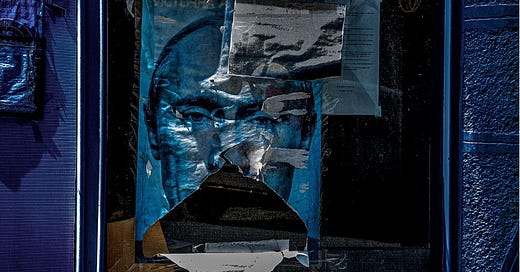
I understand that for a million people there will be a million answers.
As a young person coming from a financially struggling family,
I never thought about wanting to be rich,
to make money, to buy stuff (except cameras).
Early on I was taken over by two impulses.
The first was to be well read, a good student;
I wanted to understand and to know the answers,
not just the answers to everyday problems,
but to making a life worth living.
As I have said before in these essays,
I asked myself the question, ‘what one word would I describe myself with?’
‘Photographer’ was too superficial, there were many reasons why I wanted to be one.
‘Lover’ not as a Lothario or sexual being, but one who cares for and loves others,
That seemed to be too much about emotions, not safely rooted in ideas.
and not enough about who I really was.
I began to understand that every disagreement I had,
every confrontation and every cause I embraced was about values.
What did I embrace and what did I disagree with?
Finally I had to admit the word that fitted best
was ‘Moralist’, as uptight as that sounded.
The second reason was that having succumbed to wanting to be a photojournalist,
I understood I had inherited many responsibilities,
including giving voice to the voiceless,
committing oneself and one’s work to justice, fairness, kindness and equality for all.
I discovered that we may become enlightened
or at least our dark journeys may be illuminated
by artists, writers, poets, musicians
and occasionally the luminescent man or woman
who become our leaders until they are corrupted, compromised or killed.
For me there is a significant list of those who have shown me ways to live,
to see, to listen, to care, to love, to be curious, to enquire, and to learn to resist,
to say ‘no’, to turn down the seductive invitation, to mistrust the gatekeeper.
I had to accept that if I didn’t conform,
didn’t accept the ways of our political and corporate masters,
I would continue to be penalised.
And it’s so true because although plurality is central to our democracy,
the establishment understand plurality differently.
Ideas that swarm towards the centre of any current dialogue are admissible,
but those ideas that are outliers are ignored and rejected.
As an example: the basic concepts of neoliberalism,
which now rules our lives,
were implanted in government and corporate planning in the early 1980’s
but as they were and are
so outrageously against the more or less unspoken social contract between the people and our political servants/politicians
(who of course, as part of the neoliberal plan,
serve the wealthy rather than the people)
they have never been presented as part of a normal political discourse.
For instance,
•who discussed with or for us:
that the establishment wanted to slash the services of the welfare state?
•Who discussed that schools, hospitals, libraries, youth centres would be run down,
closed and sold off to private enterprise friends for a penny in the pound?
•Who discussed with workers deindustrializing our economies
and what that would mean to communities?
•Who discussed the reasons to destroy the trade union movement?
•Who discussed that children should no longer be taught to think critically?
•Who discussed turning every service into a profit maker?
•Who discussed deregulating industrial polluters of air and water?
•Who discussed that we the people would pay for corporate clean-ups?
•Who discussed deregulating the banks, allowing them to gamble our money
and then make us pay through austerity for their debts?
•Who discussed that our supposed political representatives
could accept huge amounts of election funding from rich individuals?
•More importantly, who discussed removing kindness, love, respect from the centre of our lives to be replaced by lust, greed and materialism?
I don’t remember any of these discussions, and if not, why not?
All the above were game changers but besides a tiny group of left-wing journalists and academics whose shouting was barely heard over the roaring of drones, the howling of right-wing bullies and the speechifying of our inane leaders, the mainstream media, seemed to not even know the name ‘Neoliberalism’ until Bernie Sanders referred to it in his first run for the presidency.
Our increasing poverty,
endless wars,
unfettered climate change,
increase suicides and random violence
are all consequences of the above.
It is time that each of us in our own lives
find ways to give the politicians
and the apparatchiks of the corporations and the state bureaucracies
a hard time.
It’s time we start saying ‘no’ and/or ‘why?’ to those who order us around.
More of the above to come but I have a question for my silent readers. When I began writing these essays 2 years ago this month, I had 25 readers and now I have about 750. Perhaps not a star of Substack, but my intention was and is to share with readers what I have witnessed through my cameras combined with all the reading I have and continue to do every minute I can. I find analysis and answers in reading history and economics, philosophy, about art and aesthetics, and also in poetry which is often filled with humanity and wisdom. I’d appreciate knowing any of you are gaining from these essays…..a simple yes or no would do.
thank you……Robert




thank you Rachael.....I am happy about that.....
Yes & thank you